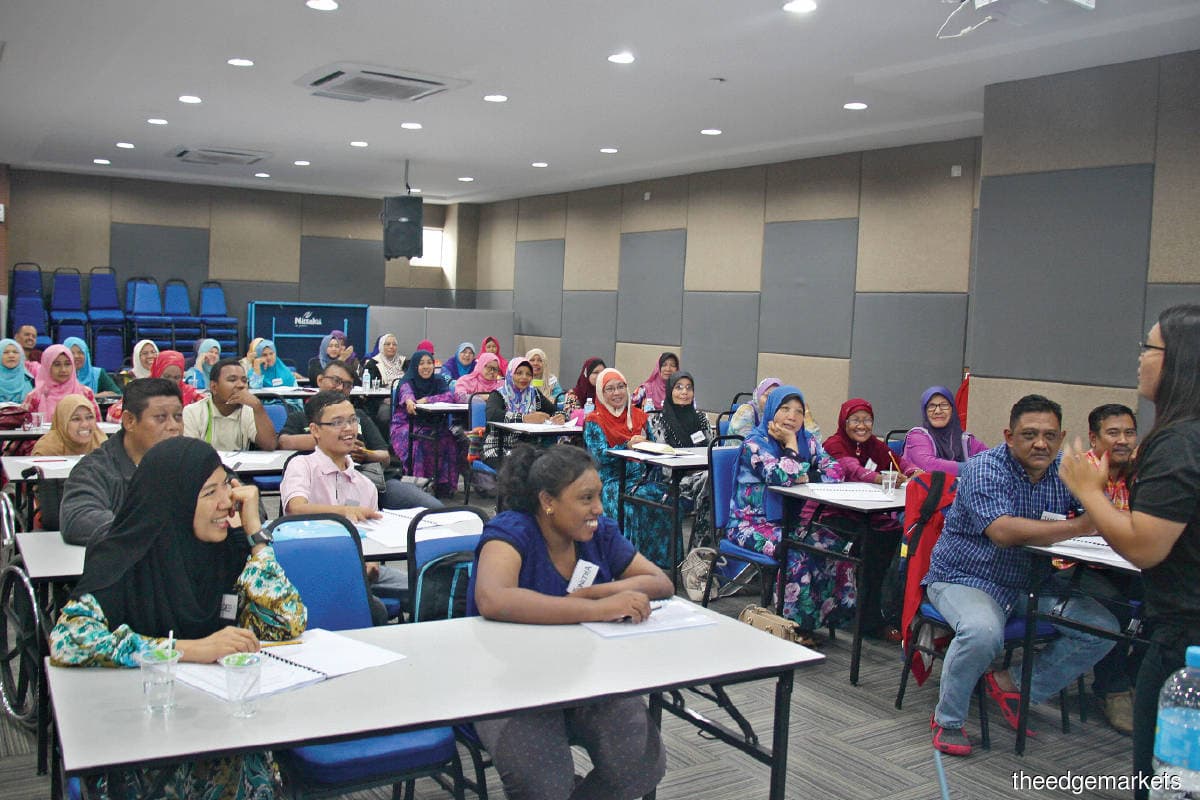
This article first appeared in Digital Edge, The Edge Malaysia Weekly on June 7, 2021 - June 13, 2021
The pandemic has hit many hard but none so hard as the marginalised groups, especially persons with disabilities (PWDs), says Maybank Foundation CEO Shahril Azuar Jimin. Most of them, he points out, operate under physical constraints and have little or no savings.
Shahril, who has run entrepreneurship programmes specifically for PWDs, knows whereof he speaks. One of Maybank Foundation’s flagship programmes — Reach Independence & Sustainable Entrepreneurship (RISE) — has given more than 11,500 PWDs across Southeast Asia (Malaysia, Indonesia, the Philippines and Laos) entrepreneurship training and so it is familiar with the challenges faced by this group of people.
The training has been effective — most participants who have gone through it increased their income by up to 157%. This is because, unlike most entrepreneurial training programmes, RISE recognised that it would have to help the participants overcome a slew of psychological barriers before it could get down to the nitty-gritty of setting up a business to make money.
According to a University of Nottingham Malaysia (UoNM) study, many PWDs lack self-confidence and develop a sense of helplessness due to their disability, unemployment and financial dependence on others. “PWDs tend to have mental blocks and feel depressed, especially when they became disabled only later in life due to illness and accidents,” says Shahril.
Maybank Foundation’s programme partner in the RISE initiative, People System Consultancy (PSC), introduced a technique known as Flipped Technology, where participants are guided by their trainers on how to change their negative mindsets to a positive one. Basically, they have to keep repeating the positive thought again and again, until the negative thought has been replaced.
RISE’s use of Flipped Technology helped inculcate a more positive mindset in more than 95% of the participants from Malaysia and the Philippines, according to the UoNM study.
“After training, our participants stopped taking money from their extended families. They even used what they learnt to turn around their businesses during the pandemic, given that they are forced to work from home,” says PSC executive director Raymond Gabriel.
Online platforms expand opportunities for PWDs
The participants learnt how to create an online presence using platforms such as Facebook, Instagram and Shopee. Some of the Malaysian participants even put their products on Maybank’s online marketplace, Sama-Sama Lokal.
“With this (the support of the RISE programme), they can open bank accounts and access microfinancing via Maybank as well as make use of e-wallet solutions such as [Maybank’s] MAE,” says Shahril.
The programme also helped expand their addressable market: “For instance, it is not sustainable to just sell things in rural areas because there are only a limited number of people in the community. So, we use technology to help them reach a wider area, including nearby cities. One of our female participants makes kueh to sell to shops. She receives daily orders, which means a stable income for her,” Gabriel adds.
The participants did not only receive theoretical training in running a business but they also got personalised mentoring from trainers at PSC as well as Maybank staff, says Shahril.
He adds that personalised mentoring is particularly helpful for participants who are socially and educationally disadvantaged. No longer disheartened by their circumstances and more confident about their intrinsic worth, participants are able to go beyond accepting low-end jobs like many other PWDs.
Overcoming infrastructure limitations
There were other barriers to overcome, such as a lack of basic infrastructure, since most of the training had to be conducted online following the pandemic. “Some of the participants are from the rural areas that have no access [to the internet]. We transferred them to the nearest cyber café. Also, many participants who join us do not have smartphones. It makes things more difficult, but we still manage to have mentoring sessions online,” says Shahril.
Gabriel adds that they are looking for local industry players who wish to make a difference by providing internet access so that participants can utilise the free data plans for their businesses.
Moving forward, RISE is coming up with an app to provide rural-based participants with access to services that benefit their businesses and livelihoods such as medical and banking services, and marketplaces with a few clicks.
“Many of our participants start something new and help the community as the RISE programme has a module called ‘Living for a Cause’. In this course, they have to contribute to the local community either by creating jobs or helping others in need. It is fantastic to see how they go from people who used to rely on welfare to becoming people who contribute to their families as well as communities,” says Gabriel.
Save by subscribing to us for your print and/or digital copy.
P/S: The Edge is also available on Apple's AppStore and Androids' Google Play.

